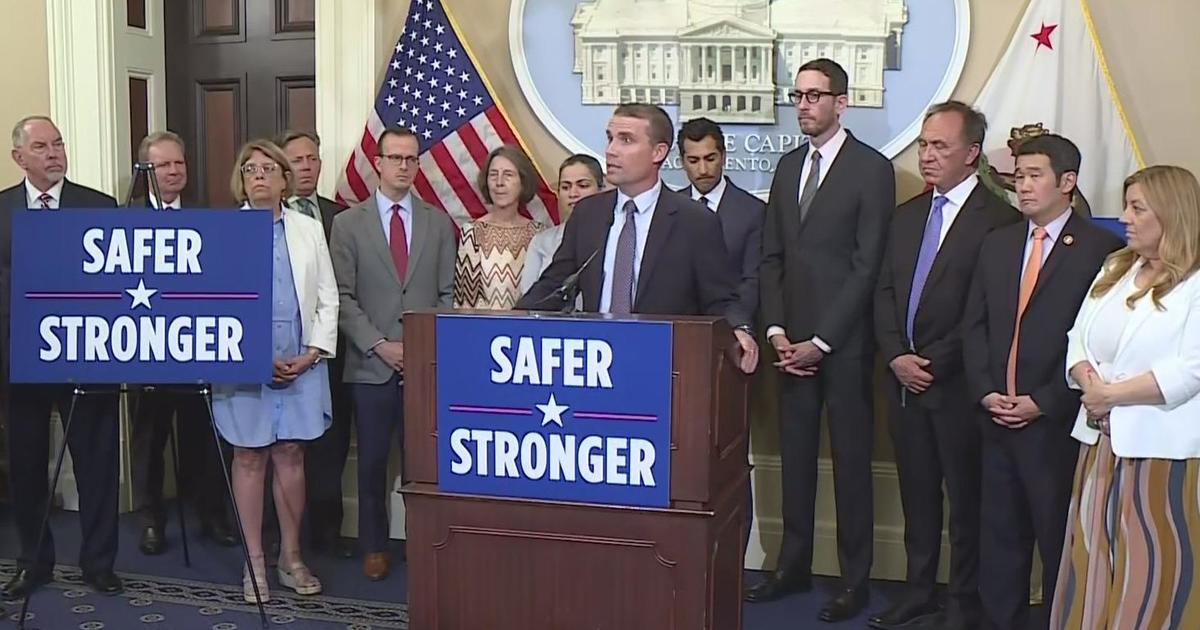At the California State Capitol, a significant political rift is emerging over retail theft laws, with accusations of dirty politics flying across party lines. The controversy centers around a proposed statewide ballot initiative aimed at toughening retail theft laws, which has now met with fierce opposition from Democratic lawmakers.
Backers of the initiative, which seeks to reform Proposition 47, argue that new legislative tactics by Democrats threaten to derail their efforts. Governor Gavin Newsom and other Democratic leaders are fast-tracking bills they believe are more effective than the proposed reforms to Prop 47.
This has led to a heated political showdown, with proponents of the ballot initiative crying foul over what they see as an underhanded move.
The proposed initiative, named the Homelessness, Drug Addiction, and Theft Reduction Act, aims to address what supporters claim are the unintended consequences of Prop 47.
Passed by California voters in 2014, Prop 47 reduced penalties for certain non-violent property crimes and drug offenses. However, critics argue that it has contributed to a rise in homelessness, drug addiction, and theft across the state.
The initiative seeks to introduce tougher penalties, including the possibility of felony charges for repeat offenders.
One of the primary architects of this initiative is Yolo County District Attorney Jeff Reisig. Reisig has been vocal in his criticism of the Democrats’ latest maneuvers, accusing them of engaging in dirty politics to sabotage the reform effort.
“This is just dirty politics. It’s underhanded, and it’s specifically designed clearly to sabotage the initiative,” Reisig asserted. He believes that the so-called “poison pill” amendment added by Democratic lawmakers is a deliberate attempt to undermine the proposed reforms.
Democratic lawmakers, however, have defended their actions, dismissing the notion of a poison pill. At a recent press conference, Assembly Speaker Robert Rivas stated, “There are no poison pills.
It’s a very misleading talking point, to be honest with you.” Despite these assurances, the controversy over the legislative tactics continues to escalate.
The contentious amendment in question would essentially nullify the proposed ballot initiative if passed. Specifically, the amendment stipulates that if voters approve the initiative to reform Prop 47, the legislative reforms being fast-tracked by the Democrats would be immediately repealed.
This tactic, often referred to as a poison pill, is designed to protect the legislative agenda from being overridden by the ballot measure.
Steve Maviglio, a Democratic strategist, explained the reasoning behind this approach. “A poison pill in legislation is designed to essentially kill something that they don’t like,” Maviglio said.
“The goal is to confuse voters so they vote no.” While acknowledging that this tactic may be unpopular, Maviglio emphasized its potential effectiveness in preventing a return to mass incarceration, which many Democrats fear could result from the proposed reforms.

The push to reform Prop 47 has gained momentum in recent years, driven in part by high-profile incidents of retail theft captured on viral surveillance videos.
These incidents have galvanized district attorneys and law enforcement officials across California, who argue that the current laws are insufficient to deter repeat offenders. They believe that tougher penalties are necessary to address the rising tide of retail theft and its broader social impacts.
As the debate intensifies, the amendments are set to be formally introduced in committee meetings. Lawmakers will soon vote on the proposed changes, and the outcome could have significant implications for both the ballot initiative and the broader legislative landscape in California.
Critics of the Democrats’ approach warn that the use of poison pill tactics undermines the democratic process and could erode public trust in government.
Supporters of the initiative argue that voters should have the final say on such critical issues, without interference from political maneuvering. They contend that the legislative tactics employed by the Democrats represent an attempt to subvert the will of the people.
On the other hand, Democratic lawmakers and their allies maintain that their actions are necessary to prevent a rollback of important criminal justice reforms. They argue that the proposed initiative if passed, could lead to increased incarceration rates and disproportionately impact vulnerable communities.
The fallout from this political clash is likely to resonate beyond the immediate issue of retail theft reform. It highlights the deep divisions within California’s political landscape, particularly around issues of criminal justice and public safety.
As the state continues to grapple with these complex challenges, the battle over Prop 47 and its potential reform serve as a microcosm of the broader ideological conflicts at play.
In the coming weeks, all eyes will be on the California State Capitol as lawmakers debate the proposed amendments and the future of retail theft reform in the state.
The outcome of this legislative battle could shape the direction of criminal justice policy in California for years to come, with significant consequences for communities across the state.
As this political drama unfolds, it remains to be seen how voters will respond to the competing narratives and whether the proposed initiative will ultimately make it to the ballot. What is clear, however, is that the fight over retail theft reform is far from over, and the stakes for both sides could not be higher.
Read more news:
